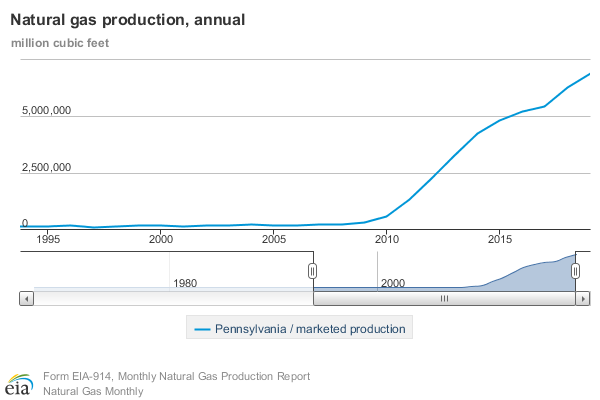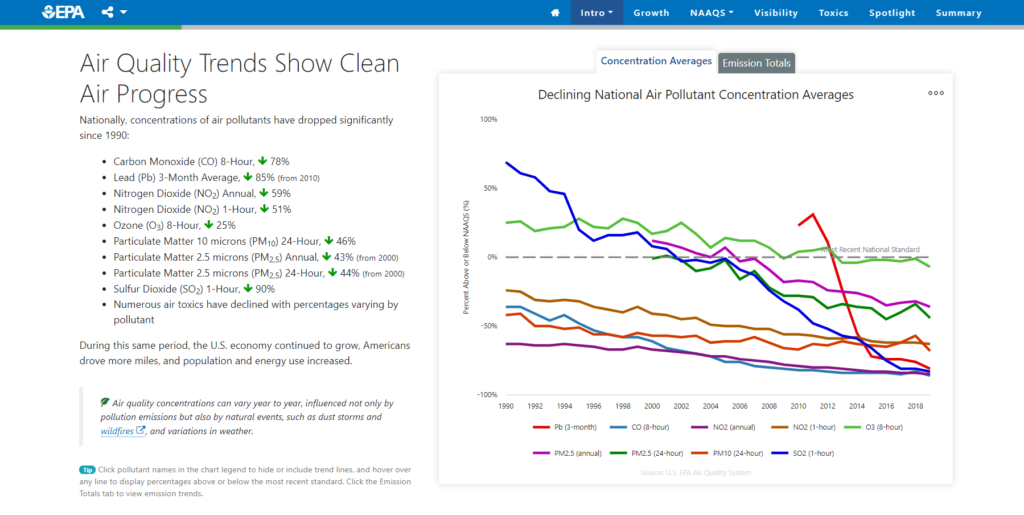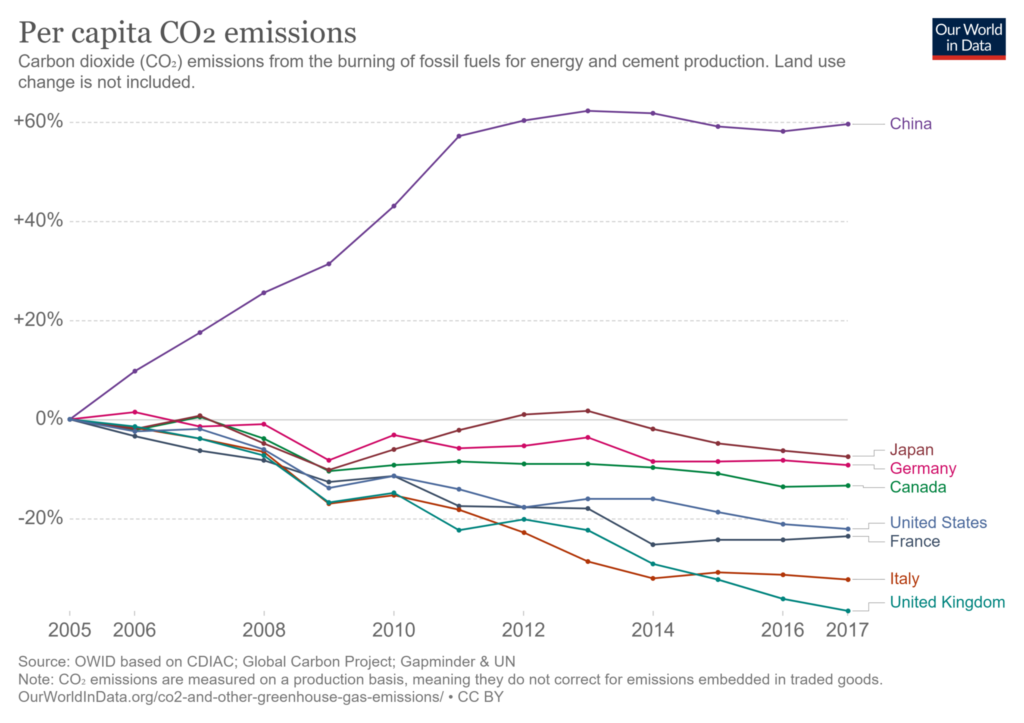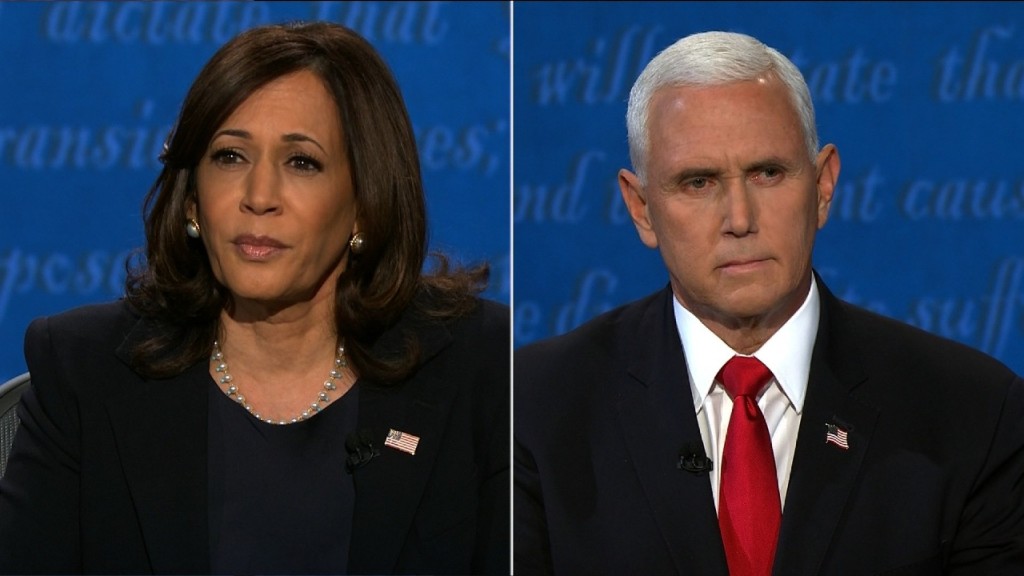Some Quick Thoughts on the Harris-Pence Debate: Fracking, Energy and the Green New Deal
Last night, a substantial portion of the debate revolved around energy and environmental policy, particularly fracking and the Green New Deal. You can watch the segment by clicking the picture below.
The reason that fracking had its moment in the sun last night is obvious: fracking has transformed Pennsylvania from an also-ran in energy production to the second-largest natural gas producing state in the nation. You can see Pennsylvania’s skyrocket to energy stardom in the graph below, which was obtained from the U.S. Energy Information Administration.

Other states that utilize hydraulic fracturing to a large extent are Colorado, New Mexico, North Dakota, Ohio, Oklahoma, Texas, West Virginia and Wyoming. New York State could also benefit tremendously from natural gas development using fracking, but Andrew Cuomo embraced a pseudo-scientific fracking ban in 2014. While some of these other states are considered electoral toss-ups, none are as important to victory in November as Pennsylvania.
Now that the pretext is out of the way, here is my summation of the debate:
During his portion of the debate Vice President Pence reminded the viewers that Kamala Harris said that she would ban fracking, and that Vice President Biden said that he would abolish fossil fuels. Pence also noted a USA Today article that said a Biden/Harris administration would enact a $2 trillion version of the Green New Deal.
The moderator used Pence’s points as a segue into the topic of climate change, asking him about hurricanes in the south, and wildfires in the west. The debate moderator asked Pence if he believed climate change has made wildfires bigger and more damaging and made hurricanes bigger, slower, and more damaging.
Pence largely dodged the question, stating how proud he was of the Administration’s accomplishments on the environment. Pence stated the United States has some of the cleanest air and water in the entire world, and touted the fact that emissions have fallen during the Trump administration. All of these assertions are true, as you can see in the graph below from the U.S. Environmental Protection Agency (EPA).

For those who were paying attention to the climate change aspect of Pence’s answer, he didn’t deny the existence of climate change. In fact, he said the climate is changing – the real question is what’s causing it and what do we do about it? Pence noted that the United States has reduced its emissions more than any other country still in the Paris Accord.
This claim is trickier to evaluate because the “goals” of the Paris Accord were determined by each country, and were much different on a nation-by-nation basis. For example, the Obama Administration said the United States would reduce emissions by 26-28 percent of 2005 levels by 2025. In contrast, China said they would hit peak emissions “sometime around” 2030, meaning they can ramp up emissions from now until then and still meet the low bar they set.
When it comes to emissions reductions, the United States had reduced their emissions by nearly 22 percent compared to 2005 levels in 2017, according to the graph below from Our World in Data. Since 2005, only France, Italy, and the United Kingdom have reduced their emissions more than the United States of the G7 countries, plus China. Since the Paris Agreement was signed in 2015, Japan and the UK have reduced emissions more than the U.S., which means Pence wasn’t correct through 2017, but I haven’t looked at global data through 2019.

Pence is correct to note that the National Oceanic and Atmospheric Administration has noted no significant increase in hurricane activity over the last 100 years, and the fires in the West are due largely to huge fuel loads because so-called environmental groups killed the timber industry and opposed prescribed burns to thin the amount of flammable material in the forests.
The Green New Deal would be completely infeasible because it relies exclusively on wind, solar, and battery power. This would result in rolling blackouts in a practical sense, and it would cause electricity prices to skyrocket because batteries are incredibly expensive.
The Moderator then turned to Harris:
“Thank you, Vice President Pence. Senator Harris, as the Vice President mentioned, you co-sponsored the Green New Deal in Congress, but Vice President Biden said in last week’s debate that he does not support the Green New Deal. But if you look at the Biden Harris campaign website it describes the Green New Deal as a crucial framework. What exactly would be the stance of a Biden Harris Administration toward the green New Deal? You have two minutes, uninterrupted.”
Harris replied:
Alright, so first of all, I will repeat, and the American people know, that Joe Biden will not ban fracking. That is a fact. That is a fact.
I will repeat that Joe Biden has been very clear what he thinks about growing jobs, which is why he will not increase taxes for anyone who makes less than $400,000 a year. Joe Biden’s economic plan Moody’s, which is a reputable Wall Street firm, has said will create 7 million more jobs than Donald Trump’s. And part of those jobs, that will be created by Joe Biden, are going to be about clean energy and renewable energy. Because you see, Joe understands that the West Coast of our country is burning, including my home state of California. Joe sees what is happening on the Gulf states, which are being battered by storms.
Joe has seen and talked with the farmers in Iowa, whose entire crops have been destroyed because of floods. And so Joe believes, again, in science. I’ll tell you something, Susan, I served, when I first got to the Senate, on the committee that’s responsible for the environment.
Do you know this administration took the word science off the website? And then took the phrase climate change off the website? This– We have seen a pattern with this administration which is they don’t believe in science. And Joe’s plan is about saying we’re going to deal with it, but we’re also going to create jobs.
Donald Trump, when asked about the wildfires in California and the question was, you know, the science is telling us this, you know what Donald Trump said? Science doesn’t know. So, let’s talk about who is prepared to lead our country over the course of the next four years on what is an existential threat to us as human beings. Joe is about saying we’re going to invest that in renewable energy, we’re going to be about the creation of millions of jobs, we will achieve net zero emissions by 2050, carbon neutral by 2035– Joe has a plan. This has been a lot of talk from the Trump administration, and really it has been to go backward instead of forward. We will also reenter the climate agreement with pride.
Senator Harris is talking out of both sides of her mouth here. Fracking is responsible for a huge surge in oil and natural gas production in the United States. There is simply no way that fracking can continue at its current rate if the Biden-Harris administration wants the United States to be carbon neutral by 2035. These two things simply cannot co-exist. The emphasis on not banning fracking is simply semantics the Biden campaign is using in an attempt to win Pennsylvania.
It’s interesting to note that Senator Harris spoke about jobs. As we’ve seen in Minnesota, wind and solar jobs are temporary, and they pay lower wages than those in the oil and gas extraction industries. The Biden-Harris plan may theoretically deliver jobs, but they never discuss what kind of jobs they are, and they conveniently fail to mention the jobs that would be destroyed through higher energy prices that increase overhead for businesses and reduce the amount of money consumers can spend.
After prompting from the Moderator, Pence replied:
As I said, Susan, the climate is changing. We’ll follow the science, but, once again, Senator Harris is denying the fact that they’re gonna raise taxes on every American. Joe Biden said twice in the debate last week that on day one he was going to repeal the Trump tax cuts. Those tax cuts delivered $2,000 in tax relief to the average family of four across America.
And with regard to banning fracking, I just recommend that people look at the record. You yourself said repeatedly that you would ban fracking. You were the first senate co-sponsor of the Green New Deal. And while Joe Biden denied the Green New Deal, Susan, thank you for pointing out, the Green New Deal is on their campaign website.
And as USA TODAY said, it’s essentially the same plan as you co-sponsored with AOC when she submitted it in the Senate. And you just heard the senator say that she’s going to resubmit America to the Paris Climate Accord. Look, the American people have always cherished our environment. We will continue to cherish it. We’ve made great progress reducing CO2 emissions through American innovation and the development of natural gas and fracking. We don’t need a massive, $2 trillion Green New Deal that would oppose all new mandates American businesses and American families, Joe Biden wants to retrofit 4 million–
Here is where Pence missed an opportunity to hammer Senator Harris. Senator Harris touted California as the model for energy policy but they couldn’t even keep the lights on in mid-August because the sun went down. Liberals pretend to have a monopoly on science but they don’t even acknowledge that physics is a science. Pence should have used this opening to punish Senator Harris and inform voters that the policies advocated for by the Biden-Harris administration would result in rolling blackouts and higher electricity prices.
Lastly, here is a reminder of what a ban on fracking would result in:
Banning fracking in Minnesota would:
- Cause gasoline prices to reach $4.75 per gallon.
- This would result in an average increase of $3,300 more per year for Minnesota families.
- That’s 220 hours of work for someone making $15 per hour.
- That’s 5.5 weeks of extra work, just to be able to get to work.
Home heating
- Most Minnesotans heat their homes with natural gas. A fracking ban would cause natural gas prices to spike.
- In 2018, Minnesotans paid an average of $790 for home heating. This would increase to $2,115 in a hypothetical 2021 where fracking was banned, nearly tripling the cost of home heating.
- The increase would result in a $1,325 increase in home heating costs.
- That’s another 88 hours of work for someone making $15 per hour.
- More than 2 weeks of working to pay to stay warm.
Electricity: In the best case scenario, killing coal and banning fracking causes electricity prices to triple.
- The average Minnesota family paid $99 for electricity each month in 2019.
- Add $200 per month, $2400 per year.
- 160 more hours
- 4 more weeks of work to keep the lights on.
Rising Energy Prices Are Essentially Energy Taxes
11.5 weeks just to pay increasing energy prices! That’s like pushing a massive tax hike on low income households. How is that climate justice?
